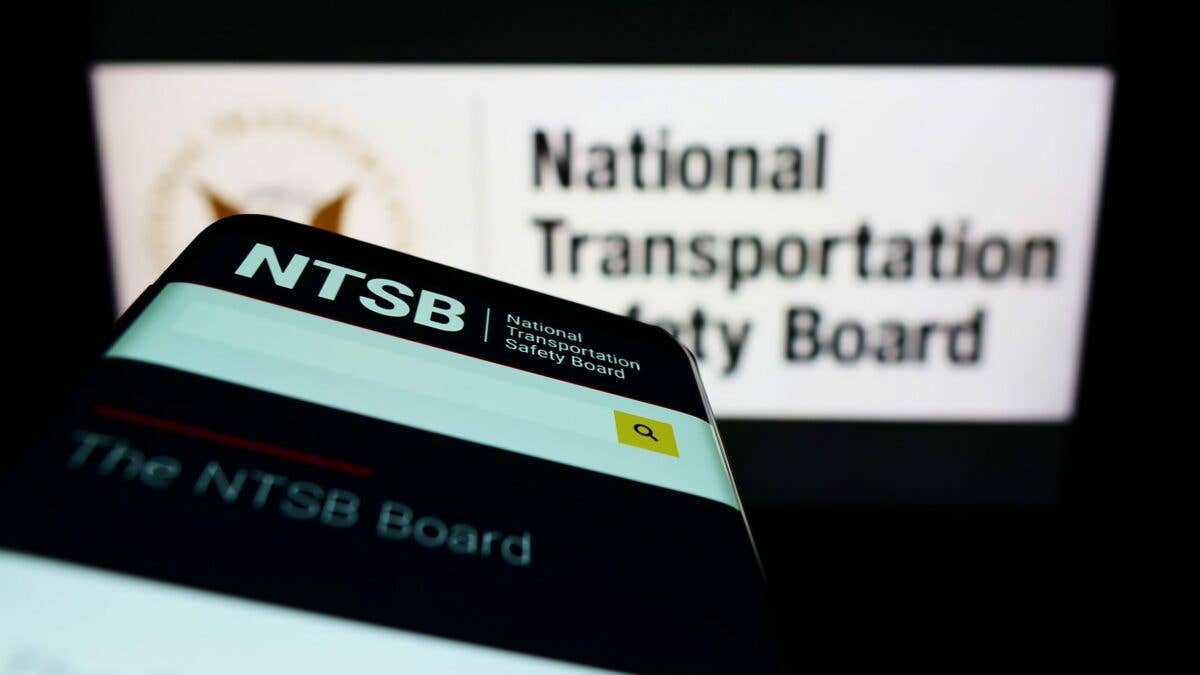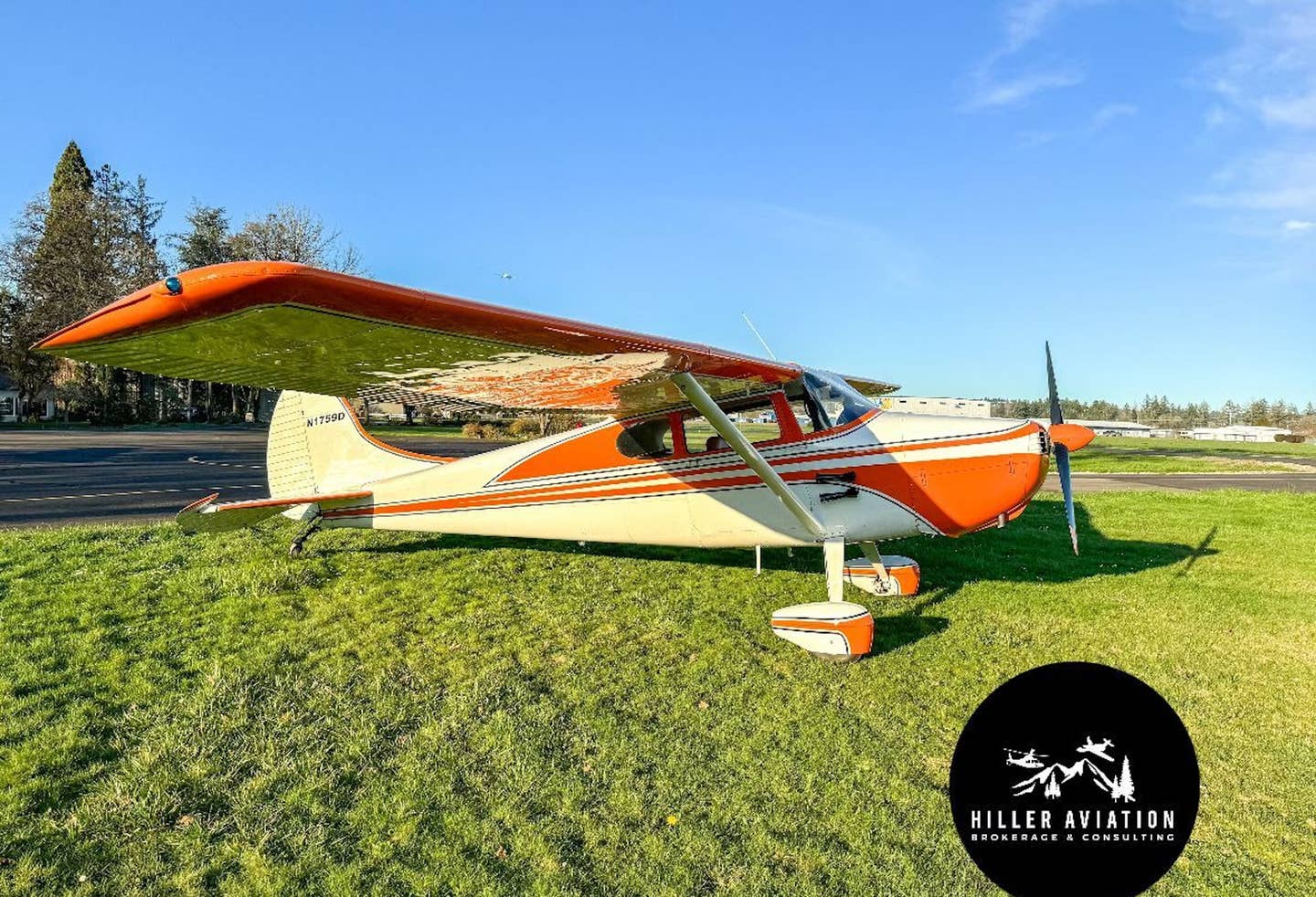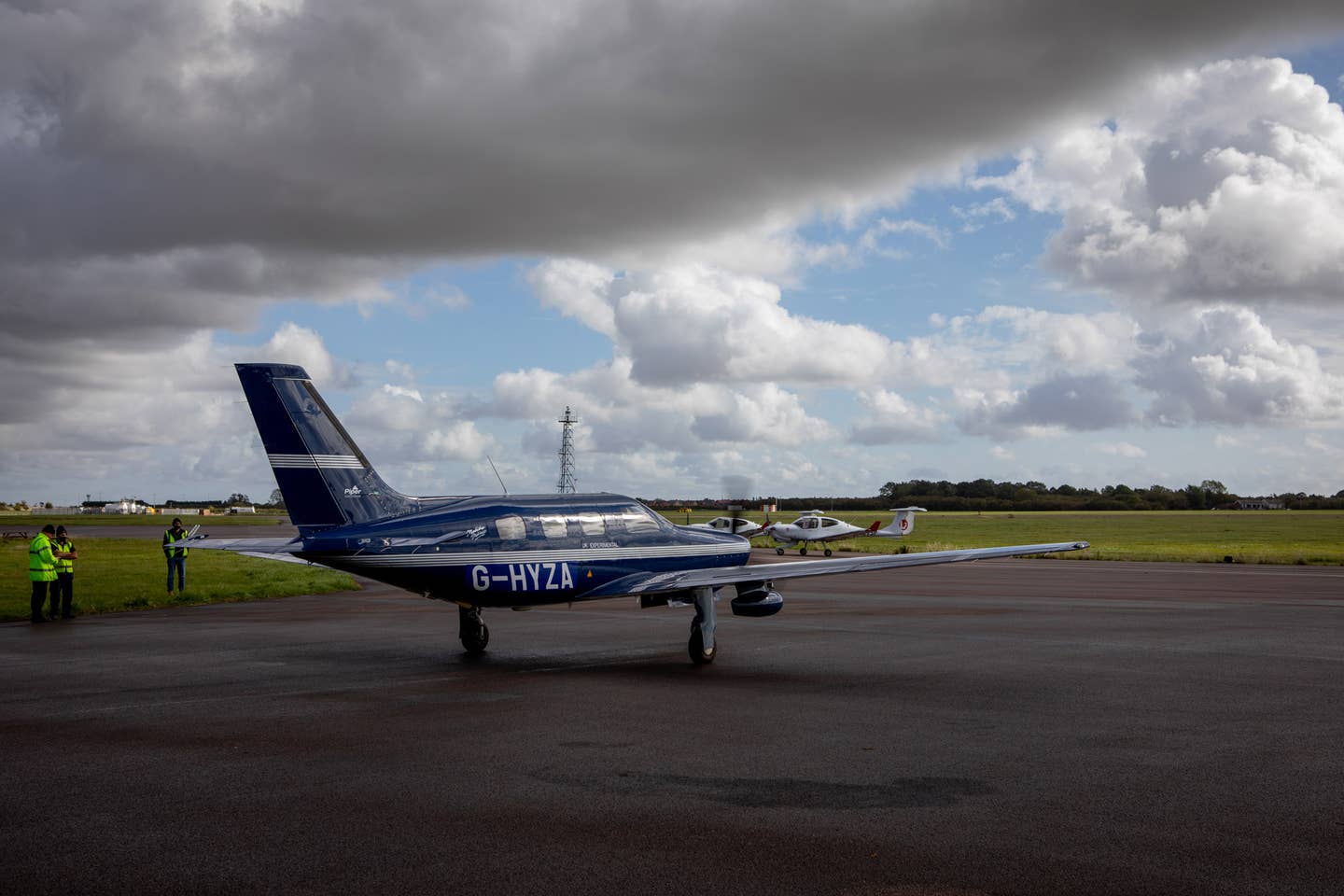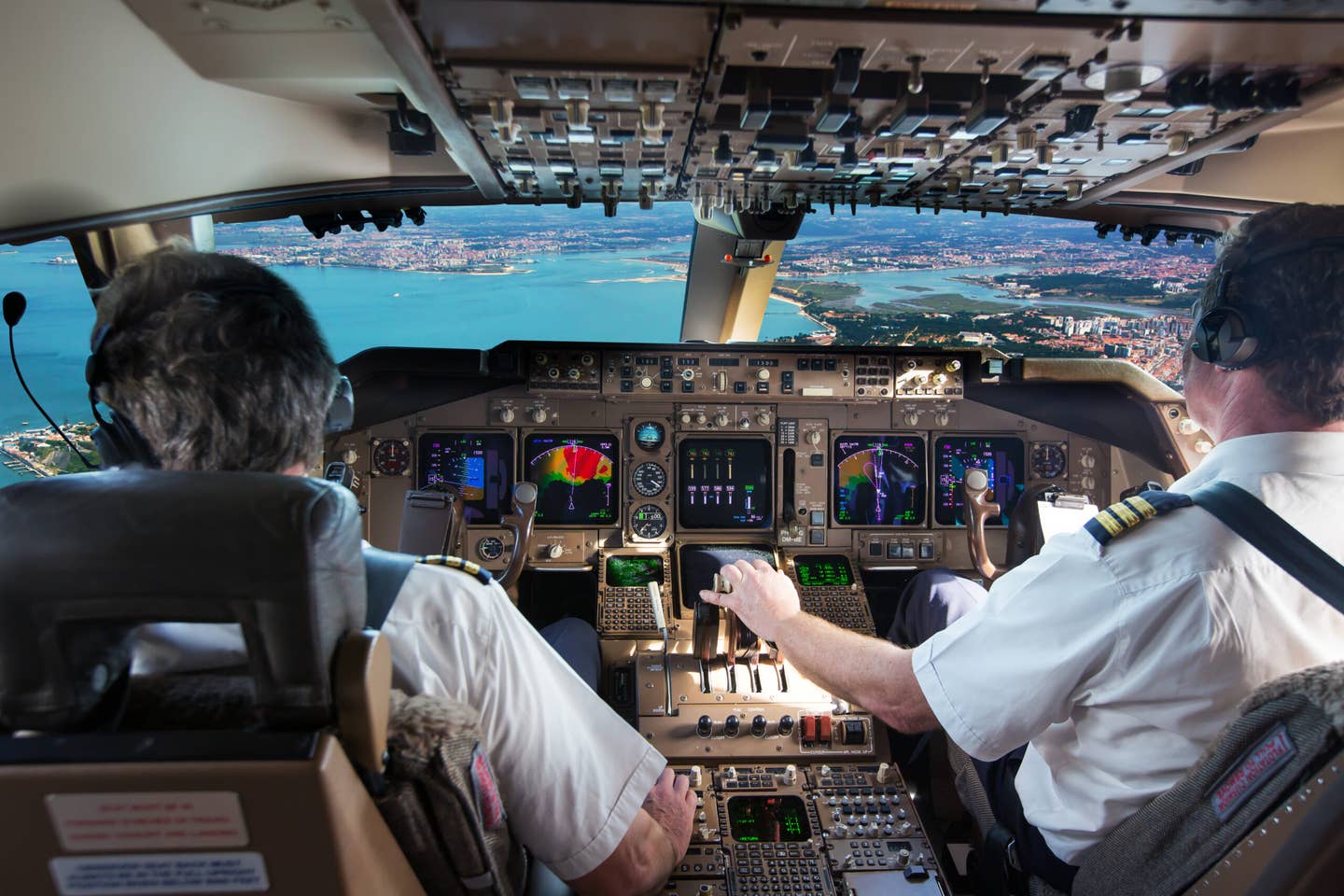
** At what point is a pilot incapacitated, and
when does it warrant intervention?** Flying
While the copilot and I began the process of preparing our 757 for a trip from JFK to Montego Bay, Jamaica, my stomach prepared itself for an attack. I was beginning to feel a mild churning sensation. The frou-frou coffee I had ordered at the airport from a franchise chain that will remain anonymous was not agreeing with my system. Quite frankly, its coffee has never agreed with my system. Despite the event that I am about to describe, I have been brave enough (or foolish enough) to try its product again — minus the flying part. Although not as severe, the results have produced similar effects.
After departing the gate, I had considered a brief stop on the taxiway. But I chose to tough it out. The majority of my stomach malfunctions had always dissipated over time. Besides, how would it appear to passengers for the captain to make a mad dash from the cockpit into the lavatory? Answer: better than it appeared later.
Not expecting a slightly uncomfortable condition to affect pilot performance, and considering that my copilot was new to the airplane, I had briefed the takeoff to be my leg. Another mistake. I rotated the airplane skyward off Runway 31L just as my intestines began a rotation of their own. Accelerating through the turn and climbing via the assigned SID, I was having serious doubts as to my abilities of keeping my insides from coming out.
Up until about 1,500 feet, I had minimized the situation to my co-pilot. I vowed to remain in control of my bodily functions at least through 10,000 feet. When the altimeter read 9,990, I simply said, “You’ve got the airplane and the radios.”
Although my copilot’s raised eyebrows expressed his concern for my future absence, he understood the urgency. I reached for the intercom handset. My announcement to the No. 1 flight attendant in the first-class cabin that I would need immediate access to the lavatory was greeted with mild astonishment … and justifiably, a little irritation. After all, we had barely been airborne for five minutes. The flight attendant complied, and I was off to the races while the copilot flew solo.
Usually, close encounters of this kind had me operational after one trip to the throne. I hoped this would prove to be true. It would be a long three-hour flight otherwise. Unfortunately, the coffee had other plans. It would take five more trips and five more eye-rolling episodes by the No.1 flight attendant before I considered myself anywhere near the definition of normal. In the small favors category, I appreciated the fact that, other than an occasional bout of nausea, nothing exited my body from the upper end.
Thanks to a professional copilot, a patient flight attendant and a subsiding of my symptoms, we were able to complete the turnaround back to JFK that day. Why do I bring this red-face episode from my past to light?
Recent events have brought the subject of incapacitation to the surface. In my situation, incapacitation rendered me unable to perform duties as a flight crew member on a consistent basis. Should we have returned to the airport?
Maybe … but that was a tough call. I wasn’t unconscious. My cognitive abilities weren’t impaired. Should my copilot have asserted his authority and made the decision to return himself? That would have been a really tough call.
Just imagine how tough a call it would have been for the JetBlue copilot that locked his own captain, Clayton Osbon, out of the cockpit. Assuming that the witness reports and sketchy cell phone videos of the event are accurate reflections, some of you may consider the decision a no-brainer. After all, it appears painfully obvious that this man was mentally incapacitated and incapable of performing his duties as PIC. What copilot wouldn't immediately prevent this lunatic from being within close proximity of the flight deck?
If the frightening outburst had occurred in a sudden explosion of craziness, no doubt the copilot would have reacted with a rapid response. But this most certainly wasn’t the case. More than likely, a series of uncomfortable interactions led to the final moment for the copilot to ring the alarm bell. These interactions probably began at the first moment the two pilots made each other’s acquaintance prior to departure.
Although crew pairing is different for different airlines, it is not uncommon for pilots to have never flown together. This may or may not have been the case for JetBlue Flight 191. It doesn’t matter. Crew members have expectations of their fellow professionals.
Operational standardization maintains the expectation that flight crew members will perform their duties consistently regardless of who is occupying a particular seat for that trip. The expectation that the other pilot is competent and safe is a given. And the expectation that the other guy will react to normal and abnormal circumstances as trained is another given. And for the copilot, the expectation that the PIC has attained his or her left seat status because they have met the standards set by the airline and the FAA is a natural assumption. Remember, Capt. Osbon was also a check airman. That status commands a different level of competence and a different level of respect.
With those basic expectations in mind, it had to have been a careful evaluation process for the JetBlue copilot to conclude that his captain had become mentally incapacitated. The icing on the cake probably became the operational erratic behavior that forced him to utilize creativity in order to relieve his boss of command.
Without question, restraint was probably considered by the copilot. The fact that the captain was not a small man may have had an influence on that idea. With or without the cockpit voice recorder transcript, none of us will really know exactly what transpired in that cockpit. Regardless, the appropriate decision was made. The end result was a safe conclusion, albeit a major inconvenience and a major expense for the airline.
So, was this subtle incapacitation or just incapacitation? Honestly, I believe it was both. As an example, almost 25 years ago one of my airline’s copilots landed a DC-10 at Newark Airport with a captain who had suffered a cardiac arrest.
The copilot’s account involved the captain slumping over the control wheel at approximately 50 feet agl. Until that moment, the only indication of problems was an unusual grunt from the captain. It was not until touchdown and the activation of reverse thrust that the copilot took control, eventually taxiing the airplane to the gate from the right seat. With the copilot focused on nonpilot flying duties during the last few seconds prior to landing, the incapacitation went almost unnoticed. Was it subtle, definitive or a combination of both?
Subtle incapacitation has to be the most difficult to evaluate. As a classic example, how long would it take a crew member to react if he observed the other pilot descending through DH without verbal or nonverbal acknowledgement of his action? The evaluation and appropriate course of action has to occur in a matter of seconds. I would like to believe that my colleagues are up to the task.
In that regard, does experience assist in dictating the appropriate response? My answer is yes … but. None of us are specifically trained to recognize all but obvious incapacitation. We have to exercise our best judgment. And the only real method to exercise that judgment is through vigilance by monitoring our fellow professional’s performance on each flight.
I watched my well-respected colleague, Sully Sullenberger, comment on the JetBlue episode via a network TV news channel. One of the issues Capt. Sullenberger mentioned was that this incident reinforces the need for copilots of Part 121 operators to have the equivalent of an ATP certificate or 1,500 hours. This is part of an FAA-proposed rule that has come as a result of the now-famous Colgan Airways crash in Buffalo, New York.
Although I agree in principle with the experience goal, 1,500 hours of flight time would not have assisted the creative decision process that the co-pilot made to relieve his captain. Nor do I believe that a copilot with less flight time would have been incapable or at least lacking in comfortable ability to land the A320 without assistance. As I am sure Capt. Sullenberger would agree, the quality of experience is as important as the quality of the training. This is a topic that deserves more than just a paragraph.
In any case, it is my sincere wish that Capt. Osbon receives help. Charging him with a federal crime of interfering with the duties of flight crew members seems counterproductive. Yes, I understand that the experience was terrifying for the passengers, but prosecuting this man is just a punitive measure. It would make sense if he was of sound mind at the time, but it's obvious he wasn't.
I am familiar with the very strict program that assists our alcoholic pilots in recovering from their disease of addiction. Capt. Osbon should be treated in a similar manner. His wife may be the wisest of us all. She stated that there is always another side to the story. I agree.
Let’s not be armchair quarterbacks until all the facts are available … incapacitation or not.

Sign-up for newsletters & special offers!
Get the latest FLYING stories & special offers delivered directly to your inbox






